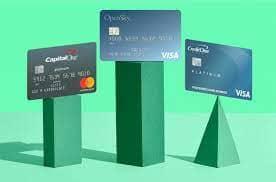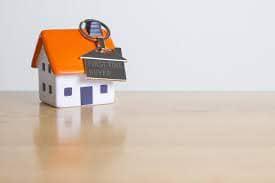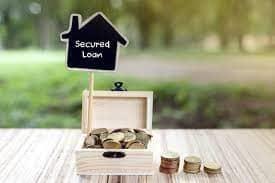Mortgages are a type of loan provided by a Bank or Building Society which is used to purchase a home or a piece of land. Mortgages can, in theory, be for any period of time but the most common type lasts 25 years. Mortgages are secured loans meaning the property/land is used as collateral until the mortgage is fully paid back. If you fail to make your repayments each month the bank can repossess the asset and auction it off. It is therefore very important to understand what you can afford to pay each month.
Mortgages can be difficult to understand and complicated to arrange and you'll often by swamped with unfamiliar terms by lenders, agents and mortgage advisors. Here's a short guide to help you understand the basics of mortgages in the UK.
Mortgage Jargon Buster
APR or Annual Percentage Rate
This part covers not only the interest rate/cost of borrowing the money but also the fee's charged by the lender. It's the total cost.
Arrangement Fee
This is the up front, set-up fee for the mortgage.
Base Rate
This is the interest rate controlled by the Bank of England. If your mortgage is a "tracker" it will adjust based on changes to the BOE base rate.
Capped Rate Mortgage
This sets a maximum interest rate the lender can charge the borrower even if the BOE base rate increases beyond this level. The borrower will never pay more than this amount. Some products have a lower threshold below which the monthly repayments payments won't fall.
Cashback Mortgage
This is a cash reward paid to you when you finish paying off your mortgage.
Deposit
A deposit is the amount of money the buyer is required to pay upfront to secure the mortgage and the property. In the past borrowers were able to pay deposits of 10% or less but these are now more difficult to find. To secure the lowest mortgage rates buyers are expected to provide up to 40% of the value of the property.
Discounted Mortgage
With this kind of mortgage, the interest you pay will be less than the standard variable rate for a fixed period of time, usually 2-5 years. If the SVR is 5%, a discount offered of 1% will leave you paying 4% for the agreed period of time.
Early Repayment Charges
Banks and building societies don't like people paying off their mortgages early as it reduces the amount of interest they can charge during the lifetime of the loan. To make up for this they often impose a penalty charge if you choose to pay your mortgage off early.
Endowment Mortgage
A form of interest-only mortgage where you pay the interest charges direct to the lender while the repayment part is paid into an investment fund or endowment. The idea is that this fund will grow during the lifetime of the mortgage and allow you to pay off the loan, in full, at the end of the term.
Fixed-Rate Mortgage
The agreed interest rate remains fixed for the duration of the deal (usually 2-5 years) so your monthly payments will not change
Mortgage Deed
This is the legal contract between you and the bank or building society. It outlines the legal obligations of both parties and the lenders rights if you fail to keep up with your monthly repayments.
Repayment Mortgage
With this type of mortgage you will pay off both the interest and capital on a monthly basis. This means higher monthly payments but at the end of the mortgage you will have built up equity equal to 100% of the property value.
Standard Variable Rate (SVR)
Every bank or building society has a Standard Variable Rate which is the amount they charge borrowers at the end of their discounted period. This is often when borrowers choose to remortgage to avoid these higher monthly rates.
Variable-Rate Mortgage
The monthly charges will depend on the lenders SVR which can go up or down, usually based on the movement of the Bank Of England's Base Rate.
Variable vs Fixed Rate Mortgages
The vast majority of people can't afford to buy a home with cash so we usually need to take a mortgage out with a bank or building society. While this may sounds simple enough mortgages comes in all shapes, sizes and types and they all have different benefits and drawbacks. The challenge is choosing the mortgage that is right for you.
Variable Rate Mortgages
A standard mortgage uses a variable interest rate, which means your monthly payments go up or down according depending on the movements of the Bank of England base rate. The benefits are that your monthly payments fall when interest rates go down and that the initial "discounted" rate will be lower than with a fixed rate deal, so you will enjoy lower monthly payments for an agreed period. The drawbacks are that you will have no stability as interest rates move over time and if there is a large increase in the Bank Of England's Base Rate you may find yourself unable to meet your monthly obligations. At the moment the BOE Base Rate remains at a record low so Variable Rate Mortgages have never been more popular - however, the rates will start to rise again at some point, probably at the beginning of 2017 so be aware.
Fixed Rate Mortgages
A Fixed Rate Mortgage protects you from uncertainty and fluctuation in your payments. However, you'll usually pay a higher rate to begin with and while you'll be thankful you chose this type of product when interest rates are rising you will be very fustrated if interest rates start to fall. Fixed Rate Mortgages are usually only available for a fixed number of years (lenders don't like to lock themselves into long-term deals) so be prepared to shop around or renegotiate your mortgage every few years. You should also study the fine print carefully and be aware of any early repayment charges should you decide to pay off the mortgage early.
Other options
There are a number of less common types of mortgage available in the market. Mortgages aimed at first-time buyers can offer lower initial interest rate that begin to rise after a few years. These have many of the same benefits and drawbacks as fixed rate mortgage deals.
If you think you will be able to build up your savings during the mortgage term, then you may want to consider an offset mortgage. This allows you to have some control over your mortgage payments as the interest on your savings is foregone and used to reduce the amount you pay on your mortgage. The disadvantage of this type of deal is your savings may not be readily available to you for a rainy day and if you dip into these savings your mortgage payments will increase again.
The mortgage market can seem a scary place but there are really only a few different types of mortgages available to you. Take the time to understand the differences, study the fine print, shop around different providers and you should be able to find a mortgage that is perfect for you.









